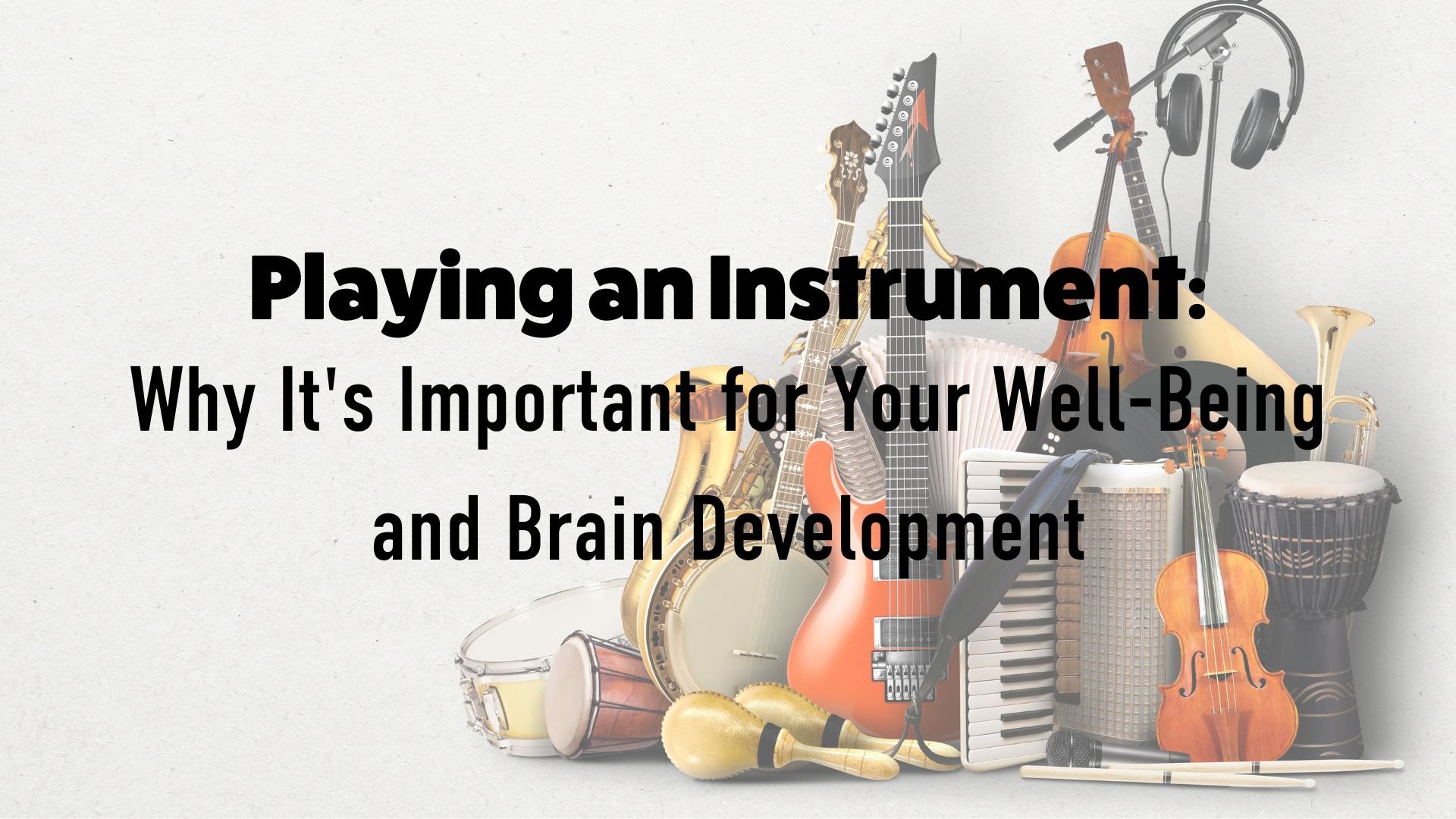Playing an Instrument: Why It's Important for Your Well-Being and Brain Development
Playing an instrument is a skill that can bring a lifetime of enjoyment and satisfaction. Beyond just the joy of creating music, however, research has shown that playing an instrument has numerous benefits for both your well-being and brain development.
In this blog post, we'll explore some of the ways playing an instrument can benefit you and offer some tips on how to get started.
Benefits of Playing an Instrument
Reduces Stress and Anxiety
Playing an instrument can help you relax and reduce stress levels. Studies have shown that playing music can lower cortisol, a hormone associated with stress, and reduce anxiety levels. Playing music can be a form of meditation and mindfulness, allowing you to focus on the present moment and forget about your worries.
Improves Memory and Cognitive Function
Playing an instrument requires the use of multiple parts of the brain, including the motor cortex, auditory cortex, and visual cortex. As a result, playing an instrument can improve memory, cognitive function, and even help prevent cognitive decline as we age.
Enhances Coordination and Motor Skills
Playing an instrument requires coordination between your hands, fingers, and brain. Over time, this can improve your fine motor skills, hand-eye coordination, and overall dexterity.
Boosts Self-Esteem and Confidence
Learning to play an instrument takes time and effort, but the sense of accomplishment that comes with mastering a new skill can boost your self-esteem and confidence. Playing music in front of others can also help you overcome shyness and social anxiety.
Fosters Creativity and Self-Expression
Playing an instrument can be a form of self-expression and creativity. Whether you're improvising, composing, or just playing your favorite songs, playing an instrument allows you to express yourself in a way that words often cannot.
Getting Started with Playing an Instrument
If you're interested in playing an instrument, there are a few things you can do to get started:
Choose an instrument that resonates with you
Before you start playing, choose an instrument that you enjoy listening to and are excited about learning. Whether it's the guitar, piano, or saxophone, choosing an instrument that you love will make the learning process more enjoyable.
Start with the basics
When you first start playing, focus on the basics. Learn how to hold the instrument, how to read sheet music, and how to play simple songs. Don't worry about mastering the instrument right away – it takes time and practice.
Find a teacher or mentor
Having a teacher or mentor can help you learn the instrument faster and more effectively. They can give you feedback, offer guidance, and help you stay motivated.
Practice Regularly
Consistent practice is essential to becoming a good musician. Set aside a regular practice time each day and stick to it. Even just 10-15 minutes of practice each day can make a big difference over time.
Playing an instrument is not only enjoyable but also beneficial for your well-being and brain development. Whether you're a beginner or an experienced musician, the benefits of playing an instrument are clear. So why not pick up an instrument and start playing today? Your brain (and your soul) will thank you!
About Inspirit AI
AI Scholars Live Online is a 10 session (25-hour) program that exposes high school students to fundamental AI concepts and guides them to build a socially impactful project. Taught by our team of graduate students from Stanford, MIT, and more, students receive a personalized learning experience in small groups with a student-teacher ratio of 5:1.

